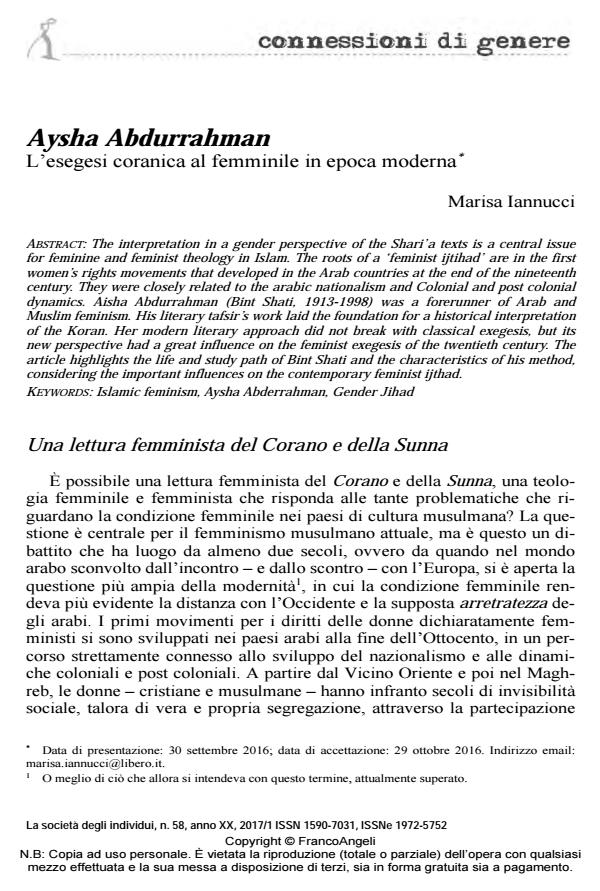Aysha Abdurrahman. L’esegesi coranica al femminile in epoca moderna
Journal title SOCIETÀ DEGLI INDIVIDUI (LA)
Author/s Marisa Iannucci
Publishing Year 2017 Issue 2017/58
Language Italian Pages 12 P. 22-33 File size 232 KB
DOI 10.3280/LAS2017-058003
DOI is like a bar code for intellectual property: to have more infomation
click here
Below, you can see the article first page
If you want to buy this article in PDF format, you can do it, following the instructions to buy download credits

FrancoAngeli is member of Publishers International Linking Association, Inc (PILA), a not-for-profit association which run the CrossRef service enabling links to and from online scholarly content.
The interpretation in a gender perspective of the Shari’a texts is a central issue for feminine and feminist theology in Islam. The roots of a ‘feminist ijtihad’ are in the first women’s rights movements that developed in the Arab countries at the end of the nineteenth century. They were closely related to the arabic nationalism and Colonial and post colonial dynamics. Aisha Abdurrahman (Bint Shati, 1913-1998) was a forerunner of Arab and Muslim feminism. His literary tafsir’s work laid the foundation for a historical interpretation of the Koran. Her modern literary approach did not break with classical exegesis, but its new perspective had a great influence on the feminist exegesis of the twentieth century. The article highlights the life and study path of Bint Shati and the characteristics of his method, considering the important influences on the contemporary feminist ijthad.
Keywords: Islamic feminism, Aysha Abderrahman, Gender Jihad
Marisa Iannucci, Aysha Abdurrahman. L’esegesi coranica al femminile in epoca moderna in "SOCIETÀ DEGLI INDIVIDUI (LA)" 58/2017, pp 22-33, DOI: 10.3280/LAS2017-058003